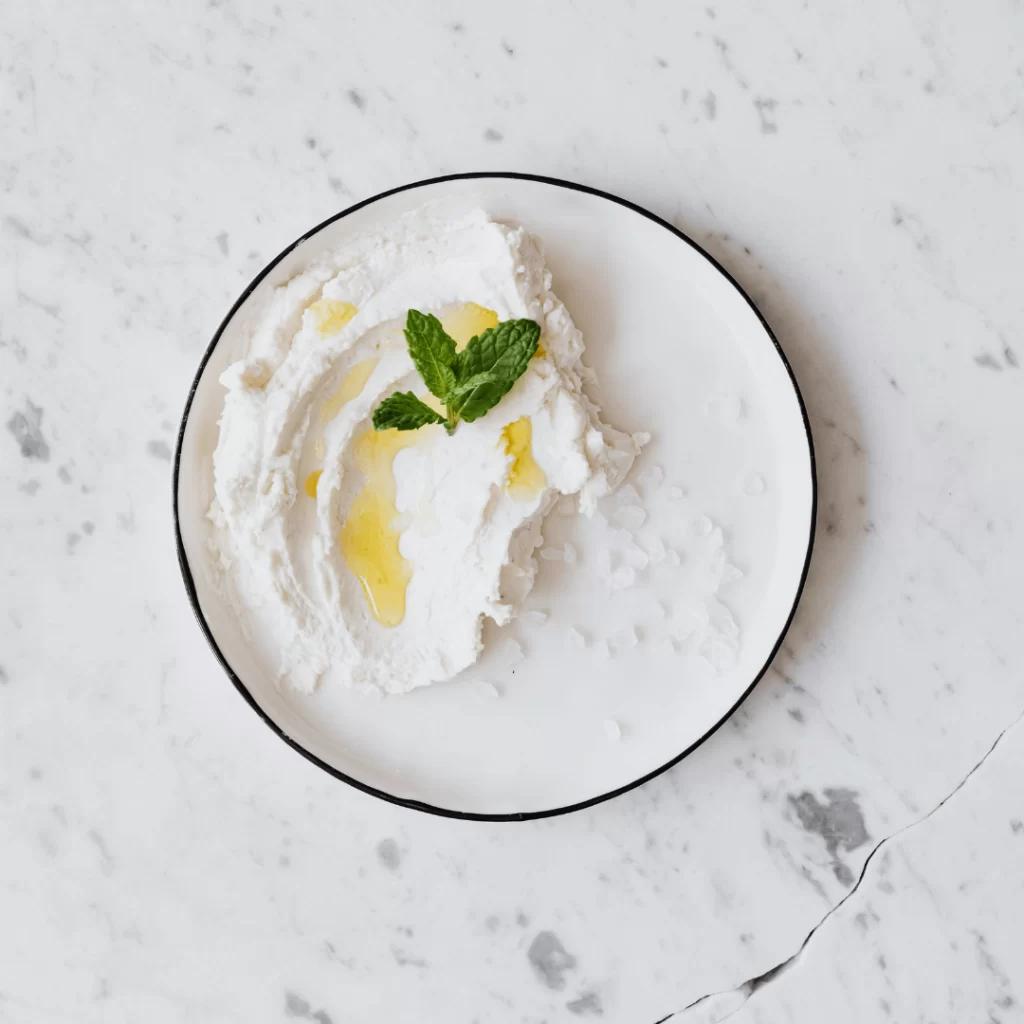It’s not flavorful. It has not undergone a lengthy aging process. It’s nothing more than cottage cheese. However, it is a wonderful alternative for creaming sauces, providing a low-fat topping option for jacket potatoes, and may even be used with pasta (not traditionally we know).
But the big issue is, can you freeze cottage cheese?
Cottage cheese may be frozen. Cottage cheese may be stored in the freezer for up to 6 months… However, you might not want to. Unfortunately, the texture of your cottage cheese will be affected when frozen, as it is with many dairy products.
How to Freeze Cottage Cheese

Before you can freeze your cottage cheese, you must first select how many servings to freeze. You’ll need to freeze it in parts so that you can simply defrost the right quantity when you need it.
Look at recipes you’ve used in the past, or just wing it. But first, figure out how much cottage cheese you’ll need.
- Portion
Have you decided on the serving sizes? So, place those pieces in airtight freezer bags. These are ideal for keeping air out of the freezer and avoiding freezer burn. - Freeze
Simply place the bag in the freezer and you’re ready to go.
It truly is that simple! - Seal
Seal the bags once the cheese has been placed inside. As you seal them up, leave a tiny gap to let as much air out as possible before entirely sealing them up.
How Long Can You Freeze Cottage Cheese?
You shouldn’t store the cottage cheese in the freezer for more than 6 months. The texture will get more broken down the longer you keep it in the freezer.
As always, make sure to label your cottage cheese with the expiration date.
Cottage cheese may be frozen for up to 6 months.
Tips for Freezing Cottage Cheese
Now that you know how to freeze it, here are our three top suggestions for getting the greatest results when freezing cottage cheese:
- Use in Cooked Dishes – The texture of cottage cheese changes dramatically after freezing. That is why it is best to use it in a cooked meal.
- Drain Extra Liquid — As the cottage cheese defrosts, it may accumulate an excess pool of liquid. Before using it, be sure to drain any extra liquid.
- Seal Tightly – If you’re not confident that the container you’re using is airtight, then wrap it in a layer of cling film or foil to add an extra layer of protection.
Does Cottage Cheese Freeze Well?
For those who have a thought in mind can you freeze cottage cheese… well, not in the least? Yes, it will freeze properly. Yes, any nutritional advantages will be retained. It won’t lose much flavor because it isn’t that flavorful, to begin with.
The primary concern, however, is the texture and the change in texture that occurs when cottage cheese is frozen.
As a result, if you’re using your cottage cheese in a prepared recipe, freezing it is OK. The cottage cheese will melt away and thicken your meal as you would anticipate.
If you intend to consume the cottage cheese immediately in a meal, go with fresh.
How Do You Defrost Cottage Cheese?
Allow plenty of time for your cottage cheese to defrost before using it. It’s best to leave this in the fridge overnight.
Remove the frozen cottage cheese part and set it in a bowl. Place it in the fridge overnight to defrost, then take it from the bag. Make certain that any surplus liquid is drained.
Can You Refreeze Cottage Cheese? Or can cottage cheese be frozen?
Cottage cheese is extremely delicate and sensitive to temperature fluctuations. Refreezing cottage cheese will only exacerbate these changes, thus it is not suggested. It’s also not a good idea to freeze it all at once!
How To Tell If Cottage Cheese Has Gone Bad? Or how long does cottage cheese last?
It’s quite simple to distinguish between good and bad cottage cheese. Here are some tell-tale indications that your cottage cheese is beyond its prime:
- The cheese has a golden tinge to it.
- It smells rotten or otherwise wrong. Cottage cheese often has a mild and fresh aroma that is not at all sour.
- The flavor became sour. Cottage cheese is not sour cream, nor should it taste like it.
Tips for Using Frozen and Thawed Cottage Cheese
I’ve included a handful of tips that I found useful while cooking with defrosted cottage cheese. I hope you find these helpful as well.
Use it in recipes that you’re already acquainted with
When whipping a dish for the first time, everything might go wrong, and you often need to make modifications to perfect it. At least, that’s been my experience.
And if you try a new dish and use defrosted cottage cheese instead of fresh, things might quickly go wrong. At least if you’re a novice chef like me.
Freeze the dish insteadFreeze the dish instead
Products in my freezer can sit there for months at a time. I simply can’t bring myself to thaw and use the goods to free up that space.
If this describes you, consider making something with the remaining cottage cheese and freezing the prepared item instead.
I don’t know about you, but a batch of frozen pancakes (or whatever) that I only need to reheat seems far more appealing to me than a container of frozen cottage cheese that I need to thaw and prepare. The latter needs a lot more time and effort.
If you have a habit of freezing things just to forget about them and utilize them half a year later because you need some freezer space, try this instead.
Check the texture
After thawing, frozen sour cream and buttermilk separate and become considerably thinner than before freezing. Cottage cheese has the opposite effect — you end up with a chunkier dairy product than you started with. The texture is similar to ricotta cheese.
As a result, you may need to adjust the texture of whatever you’re using defrosted cottage cheese to achieve the desired result.
This is especially crucial in meals like pancakes, where the correct consistency of the batter is required to make fluffy pancakes.
The simplest method to accomplish this is to add some liquid, such as milk or cream, depending on what works best for your recipe.
Uses of Thawed Cottage Cheese
You’ve chosen to freeze cottage cheese, but you’re not sure what to do with it after it’s thawed.
As previously said, defrosted cottage cheese works best in prepared meals, so I recommend starting with those. There are a plethora of alternatives available, including:
- Pancakes
- Soups with a creamy texture
- Casseroles and spaghetti
- Cheesecake and other similar cakes
Looking for a specific recipe? Here’s a wonderful list of cottage cheese applications that covers a variety of prepared recipes that should work well with frozen and defrosted cottage cheese.
You may also Google terms like “cottage cheese cheesecake,” “cottage cheese soup,” and so on.

Hey, y’all! I’m Akshay!
I’m SO excited you’re here! I’m super passionate about nutrition and specialize in teaching others how to lose weight through healthy, low-carb eating along with Yoga and exercises. Here at Yourfitnessgoal, we believe in quality over quantity and that diet is EVERYTHING when it comes to your health and well-being. In short, we believe in a Fit and healthy lifestyle.

